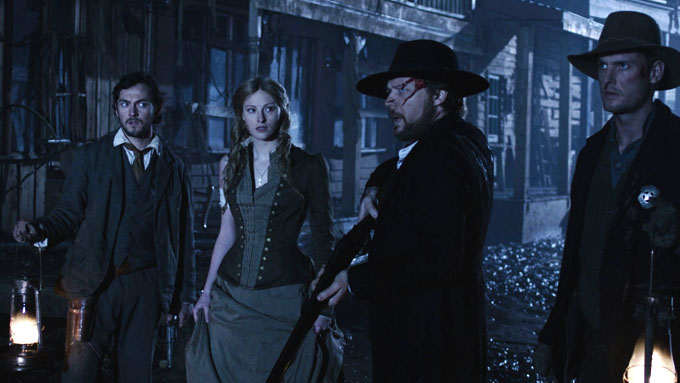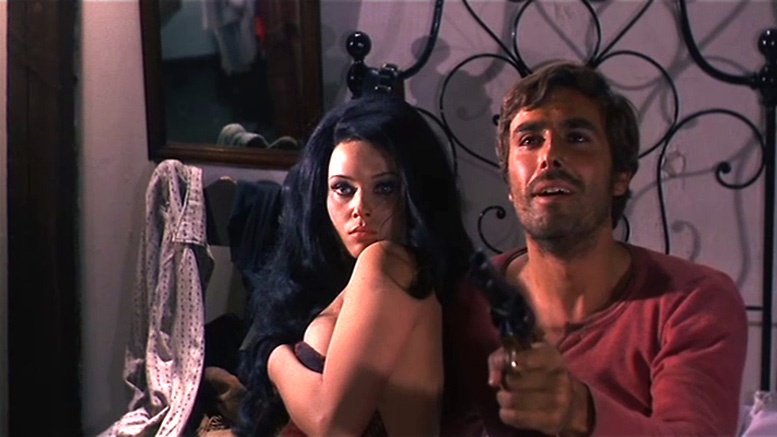Year: 1966
Length: 86 mins
Italy
A Cineradi (Rome), Compagnia Cinematografica Astro (Madrid) production
Story: Emimmo Salvi
Screenplay: Raniero Di Giovanbattista, Benito Ilforte, Emimmo Salvi, Sergio Tocci
Cinematography: Mario Parapetti
Music: Romano Rizzati
Editor: Cesare Bianchini
Art director: Saverio D’Eugenio
Cast: Evi Marandi (Julie O’Brien), Little Tony (Giorgio Buratti), Akim Tamiroff (Joe Montano), Oreste Palella (the commissioner), Furio Meniconi (Gennaro), Feodor Chaliapin (Sam, the lawyer), Gabriella Andreini (Lola), Angela Luce (Marina, Romolo’s fiancee), Mirella Pamphili, Liliana Zagra, Dante Maggio (Buratti’s lawyer friend), Cecilia Perra, Umberto Pergola (Franco Buratti), Franco Doria, Steve Macrea, Tony Pulcini, Jesús Puente (Romolo Buratti), Francisco Sanz (Pepe, the club manager), Lilli Zander
Uncredited: Artemio Antonini (fighter in nightclub)
Following Three Bullets for Ringo, Salvi decided to change tack again and return to the same present day setting that he’d previously used in FBI chiama Istanbul. Un gangster venuto da Brooklyn, though, wasn’t a spy film – even if the opening credits and soundtrack feel as though they’ve been nabbed wholesale from that genre – and, despite the title, it’s not really a crime film either. Rather, it’s a late attempt at a ‘musicarello’, the popular productions of the late fifties and early sixties that were constructed as vehicles for singing protagonists such as Claudio Villa and Tony Renis, youthful crooners who would also release albums featuring songs from the films in support to their cinema run.
Joe Montano (Akim Tamiroff) is a former gangster who’s retired from Brooklyn and returned to his childhood home in Rome. His former moving-and-shaking ways, however, prove hard to put aside, and he decides to build a skyscraper in an old, decrepit part of the city. With a little assistance from his goons, and through a mixture of strong-arm tactics and ready cash, he’s able to buy up just about all the property in the area. Apart, that is, from the nightclub owned by wannabe singer Giorgio Buratti (Little Tony) and his brother, Romolo (Jesus Puente), who have a dream of making a big success of their investment, and are unwilling to let it go however forceful the encouragement to sell.
Increasingly frustrated, Montano does everything he can to change their minds. He offers them a whopping sum of money, but they won’t budge, and attempts at threatening them end with a spectacular level of failure. So he’s forced to use his local bigwig contacts, cooking up a wholly legal but extremely devious way of seizing the club. Unable to contest the repossession order by normal means, Romolo is left with no alternative but to plan a complex robbery, breaking into Montano’s own apartment in order to steal some important documents. Giorgio, meanwhile, is busy wooing his new ladyfriend, July (Evi Marandi), an American tourist, and it’s only when they’ve fallen in love that he realises that she’s actually Montano’s grand daughter.
This is an entirely harmless concoction which, despite a number of comic moments, plays things far straighter than could have been expected. Thankfully, any slapstick is restricted to the occasional fight sequence and, although the narrative is hardly sophisticated, at least it’s handled with a certain degree of respect. Anyone expecting to see a hardboiled poliziotteschi, though, will be disappointed: the emphasis here is on the songs and the young leads, who spend much of their time travelling around Rome as though they’re taking part in a promotional video for the city.
And, as with many of the ‘musicarelli’, it all ends happily, with even the corrupt authority figures (or, in this case, the mob) forgetting their differences and simply getting down and enjoying the music… and what’s wrong with that. The whole thing ends with a protracted sequence in which numerous familiar character actors dance badly to some awful tune that sounds as though it’s being sung by a Lulu impersonator, which all seems strangely appropriate somehow.
As with Salvi’s other work, this again has a strange, hyper-real ambiance, which actually seems even stranger because this is at least supposed to have a vaguely realistic setting. Those worried that his directorial touches would be compromised by the modern day setting will also be glad to know that all of his trademark touches are present and correct: extravagant (on a budget) studio sets, song and dance routines, gratuitous midget abuse. And his left of kilter sensibilities are highlighted by the fact that, right in the middle of this kiddie friendly fluff, he takes the inexplicable decision to throw in a lengthy topless dance routine (this could easily be an insert that was only present in the French version under review, as it doesn’t feature any of the other actors from the film and marks the only participation from the dancer in question).

